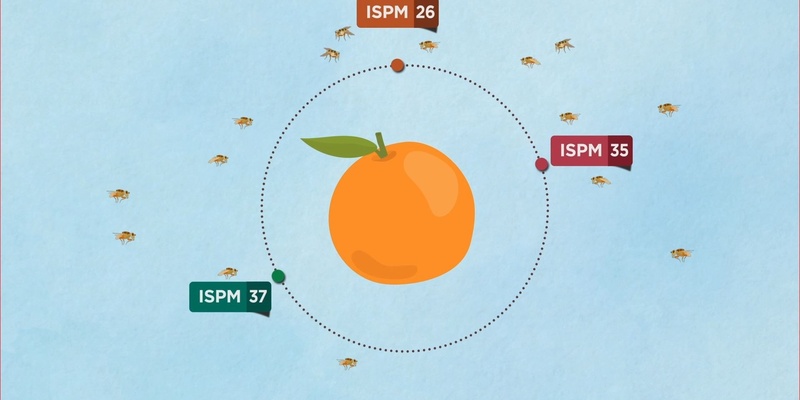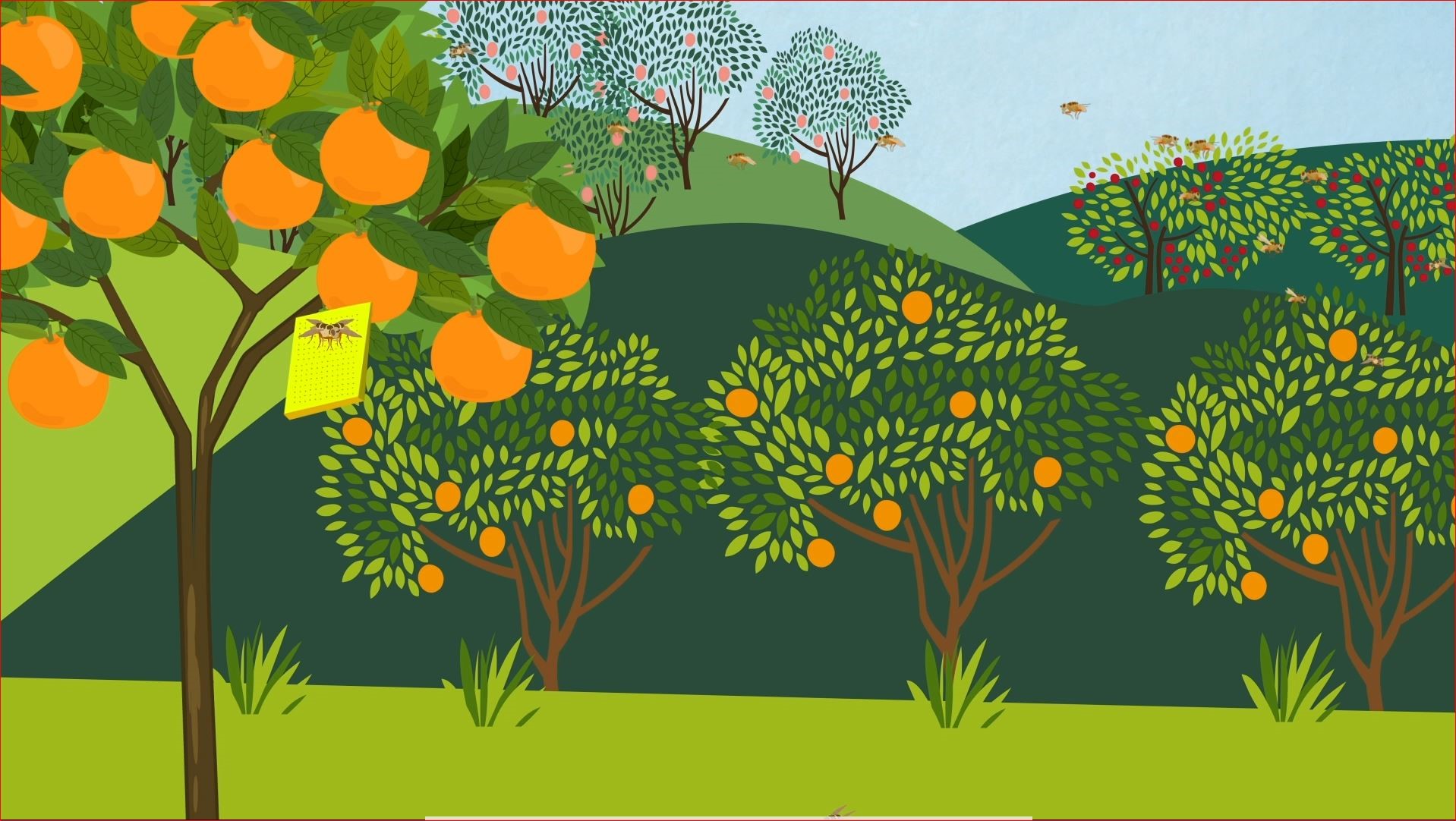Fruit fly international standards can help gain market access
Posted on Thu, 14 Jan 2021, 17:01

Vienna,8 January 2021. An animated infographic developed in collaboration with the International Plant Protection Convention (IPPC) Secretariat and the Joint FAO/IAEA Programme of Nuclear Techniques in Food and Agriculture. This short video on ‘Fruit Fly International Standards Can Help Gain Market Access’ was published in six languages (English, Arabic, Chinese, French, Russian and Spanish) and can be found at http://www-naweb.iaea.org/nafa/resources-nafa/multimedia.html.
The IPPC is a multi-lateral treaty that facilitates global cooperation to protect plants from harmful pests, such as fruit flies, that may be introduced and spread through international trade. Fruit flies present a major challenge to international trade, because if they are detected in fruits, trade may be stopped. That is why a set of International Standards for Phytosanitary Measures (ISPMs) on fruit flies has been developed and adopted by the Commission on Phytosanitary Measures, these standards are recognized by the WTO’s Sanitary and Phytosanitary Agreement. The suite of fruit fly standards was recently reorganized to make them more accessible to countries that want to export fruit safely, as this set of standards can help facilitate the process.
These standards include ISPM 37 on ‘Determination of host status of fruit to fruit flies (Tephritidae)’. This standard provides guidelines for the determination of host status of fruit to tephritid fruit flies and describes three categories of host status of fruit to fruit flies (Classification of a plant species or cultivar as being a natural host, conditional host or non-host for a fruit fly species). It includes methodologies for surveillance of the target fruit fly pest under natural conditions and field trials under semi-natural conditions that should be used to determine the host status of fruit to fruit flies and is especially helpful for cases where host status is uncertain. Can a fruit be a host for fruit flies? In other words, if the fruit is not susceptible to the fruit fly, the pest cannot infest it and it is a non-host and therefore it can proceed directly for export.
Next comes ISPM 26 on ‘Establishment of pest free areas for fruit flies (Tephritidae)’. This standard provides guidance for the establishment of pest free areas (An area in which a specific pest is absent as demonstrated by scientific evidence and in which, where appropriate, this condition is being officially maintained) for tephritid fruit flies of economic importance, and for the maintenance of the area’s pest free status. If a fruit comes from a fruit fly free area, then it can also go for export.

But if fruit flies are present in the area, then the country or area must apply additional phytosanitary measures, to reduce the risk of fruit fly hosts introducing the pest to the importing country. This scheme is reflected in ISPM 35 ‘Systems approach for pest risk management of fruit flies (Tephritidae)’. It provides guidance for the development, implementation and verification of integrated measures in a systems approach (A pest risk management option that integrates different measures, at least two of which act independently, with cumulative effect), as an option for pest risk management of tephritid fruit flies of economic importance. This can help to facilitate the international trade of fruit fly host products or to minimize the spread of regulated fruit flies within an area. The integration of these measures will help reduce the risk of pests in fruit trade to levels that are acceptable to the importing country, while contributing to assuring high quality fruits are being exported.
In conclusion, the phytosanitary scheme under which trade might occur is defined and agreed by the interested parties, based on ISPMs. This is done through a bilateral agreement between the plant protection organizations of both the exporting and the importing countries. Through the implementation of the ISPMs, countries protect plant resources from fruit fly pests while, at the same time, they ensure the application of justified measures that help facilitate safe trade.

